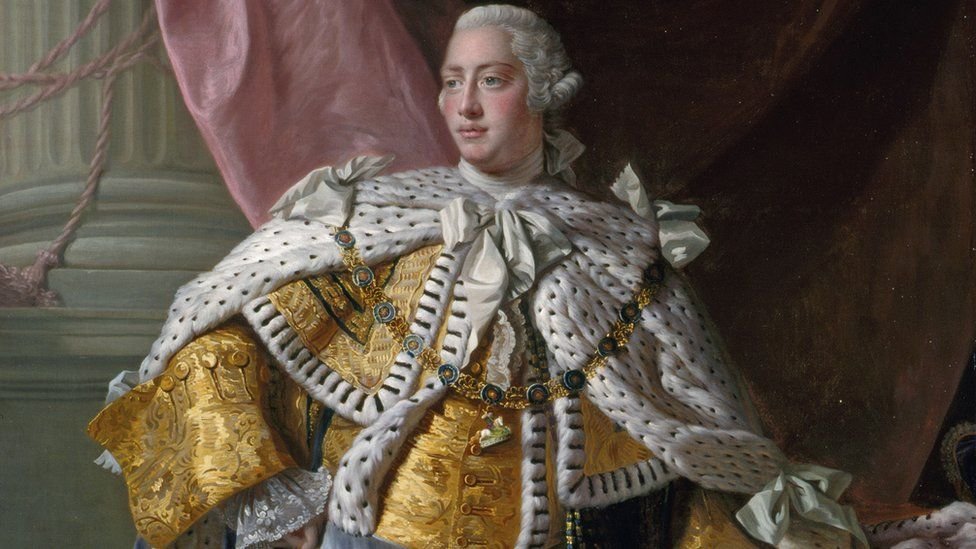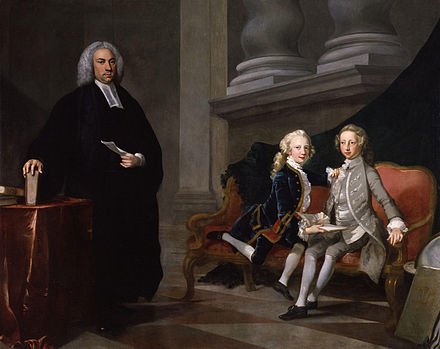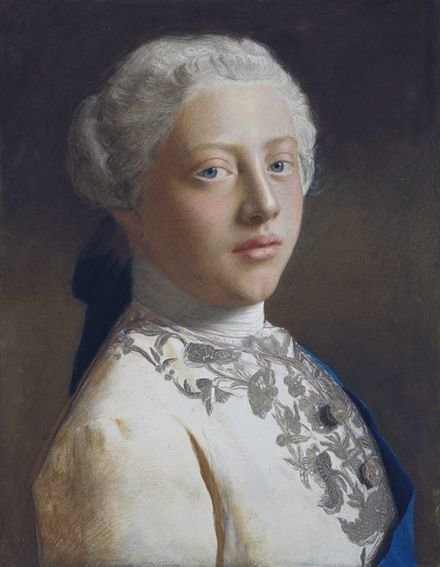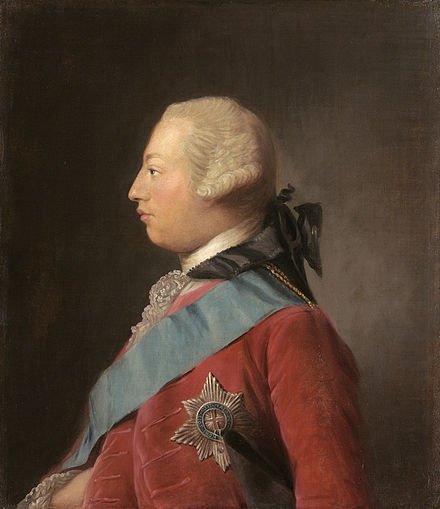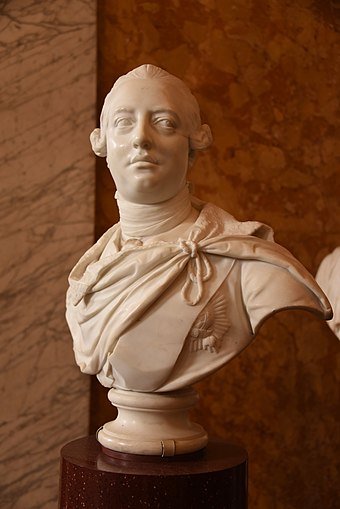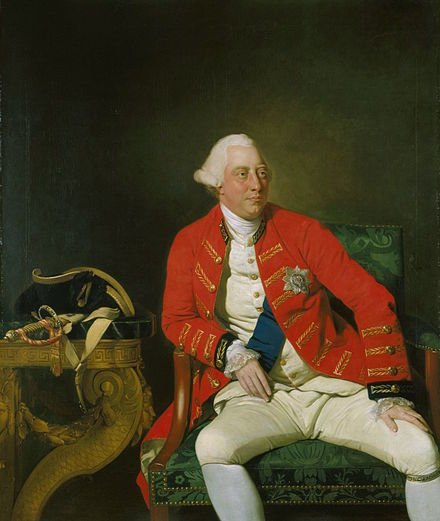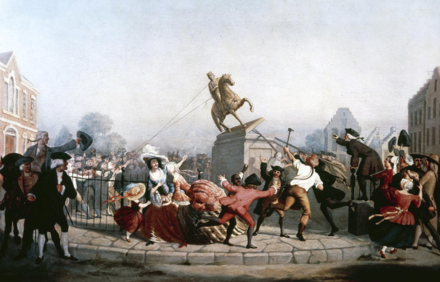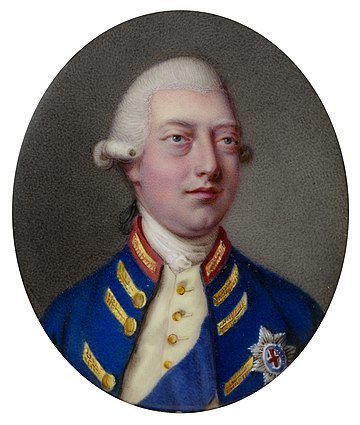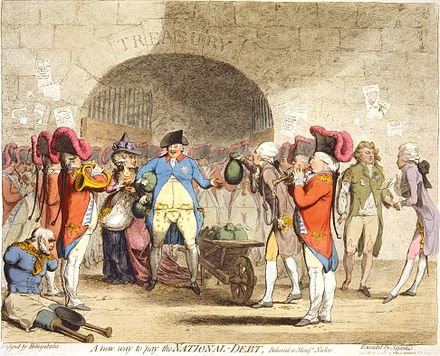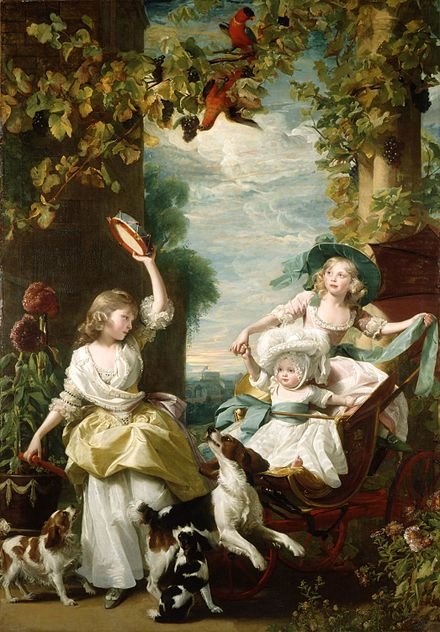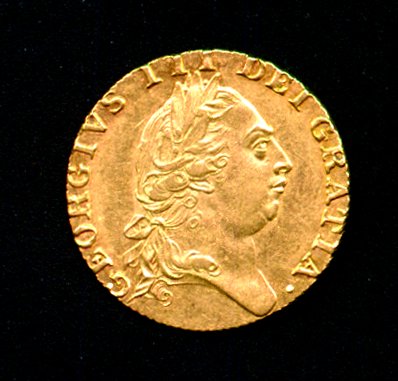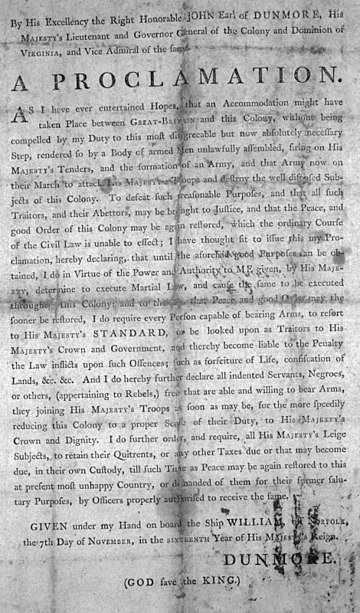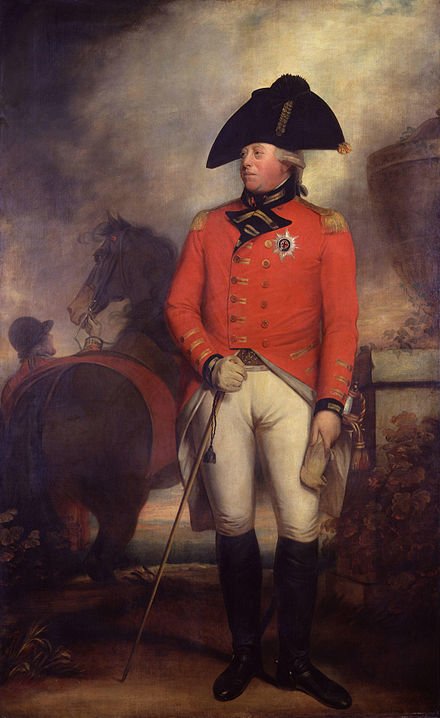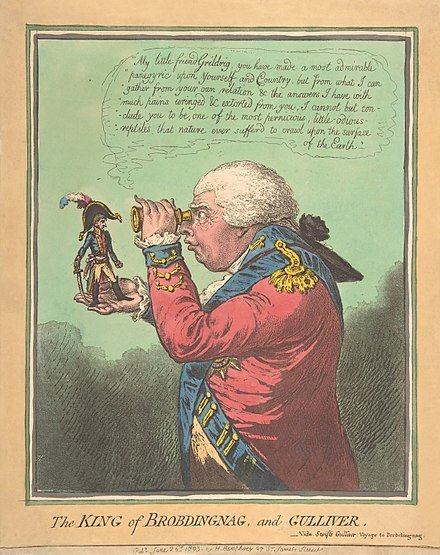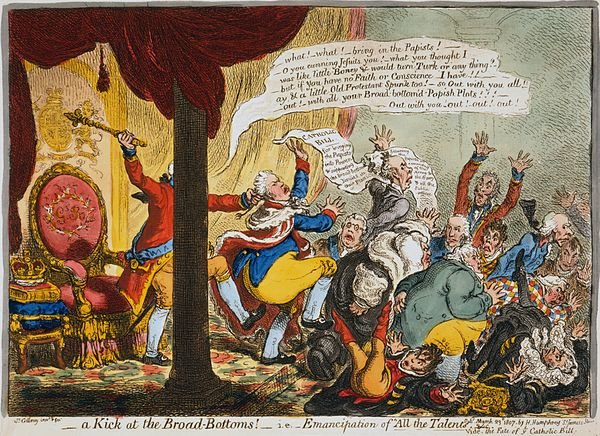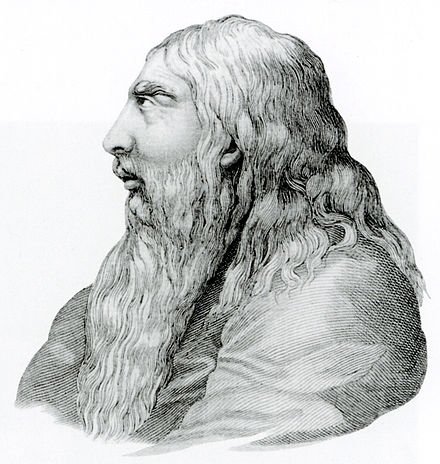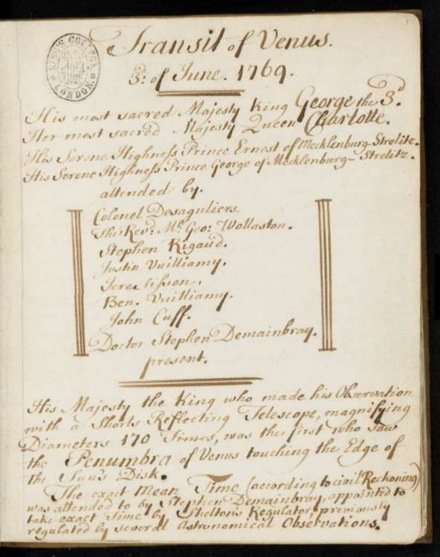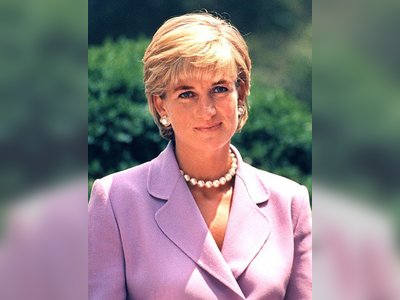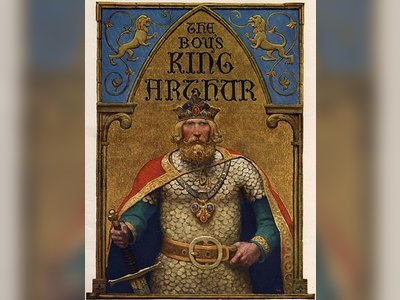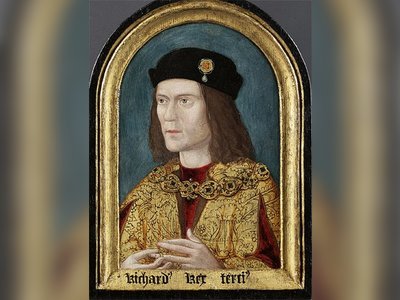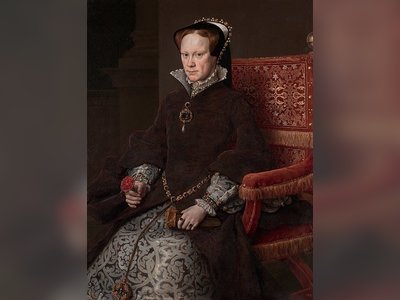British Heritage
Remember, Cherish, Learn.
beta
George III - Won India and Canada, Lost America
His Contribution to British Heritage.
George III, the longest-reigning monarch in British history until that time, played a significant role in shaping the legacy of the United Kingdom and its impact on the world. Born on June 4, 1738, in London, he ascended to the throne on October 25, 1760, and ruled until his death on January 29, 1820. His reign witnessed a series of pivotal events, including military conflicts that expanded British territories in some regions and saw the loss of the American colonies. George III's contributions to British heritage, the success of his reign, and his influence on global affairs are subjects of historical interest and debate.
George III's legacy is marked by a mix of achievements and challenges. His early reign was characterized by British victories in the Seven Years' War, securing dominance in North America and India. However, his inability to address the grievances of the American colonies led to their secession during the American War of Independence, resulting in the loss of a significant part of British territory.
Moreover, George III's later years were marred by recurrent mental illness, with the exact cause remaining uncertain. Despite his struggles with mental health, he continued to discharge his duties as king, albeit with the assistance of a regent during periods of severe illness. These periods of instability created tensions within the government and among political factions.
George III's religious devotion and moral values endeared him to many of his subjects, and he promoted Anglicanism as the state religion. His support for arts and literature, as demonstrated by his financial assistance to the Royal Academy of Arts and the establishment of the King's Library, played a role in enriching British cultural heritage.
Early in his reign, George III presided over British victories in the Seven Years' War (1756–1763), notably defeating France and gaining dominance in North America and India. This marked a significant expansion of the British Empire and reinforced Britain's status as a major European power.
The King's support for the Royal Academy of Arts and his passion for collecting books contributed to the enrichment of British cultural heritage. His personal art collection included notable works like Johannes Vermeer's "Lady at the Virginals" and a set of Canalettos.
However, his reign also saw the loss of a crucial part of British heritage. The American War of Independence (1775–1783) resulted in the secession of Britain's American colonies, leading to the birth of the United States of America. The loss of these colonies dealt a blow to Britain's imperial power and significantly altered the geopolitical landscape.
Despite the setbacks in America, George III's reign saw Britain achieve military success in other conflicts. During the later part of his reign, Britain played a prominent role in the wars against Napoleonic France (1793–1815). The defeat of Napoleon at the Battle of Waterloo in 1815 cemented Britain's position as a key player in European affairs.
George III's unwavering support for Prime Minister William Pitt the Younger demonstrated his ability to influence political decisions. Pitt's appointment as Prime Minister marked a victory for the King, as he was able to assert his own interpretation of public sentiment and appoint ministers of his choice.
Additionally, George III played a significant role in ending the transatlantic slave trade, as in 1807, the British Empire banned this inhumane practice. This marked a step towards the abolition of slavery, a monumental development in British history.
George III was born in London on June 4, 1738, as George William Frederick, a grandson of King George II. He was the eldest son of Frederick, Prince of Wales, and Augusta of Saxe-Gotha. As a child, George displayed intelligence and an aptitude for learning, studying various subjects, including science, mathematics, and languages. He was the first British monarch to systematically study science.
In 1761, George married Princess Charlotte of Mecklenburg-Strelitz, and the couple enjoyed a happy marriage until George's later years when his mental illness worsened. They had 15 children, and George was a devoted father who strictly guided their upbringing.
Throughout his life, George III was deeply religious and spent hours in prayer. His piety earned him respect and admiration from his subjects. His devout beliefs influenced his decision-making and moral values.
George III's reign was a complex mix of triumphs and challenges, leaving a lasting legacy on British heritage. He oversaw British expansion in North America and India, but also faced the loss of the American colonies during the War of Independence. His unwavering support for Prime Minister Pitt demonstrated his influence in political matters, and his contribution to British cultural heritage through support for the arts and literature cannot be overlooked.
However, George III's later years were marked by mental illness, which had significant implications for the monarchy and the stability of the government. Despite these challenges, he remained dedicated to his role as king and maintained a sense of duty until his death in 1820.
As one of the longest-reigning monarchs in British history, George III's reign continues to be a subject of historical interest and analysis, with varying perspectives on his character and the impact of his decisions. His complex legacy remains a crucial part of the broader narrative of British history and its influence on the world.
The Legacy of George III: A Complex Reign
George III's legacy is marked by a mix of achievements and challenges. His early reign was characterized by British victories in the Seven Years' War, securing dominance in North America and India. However, his inability to address the grievances of the American colonies led to their secession during the American War of Independence, resulting in the loss of a significant part of British territory.
Moreover, George III's later years were marred by recurrent mental illness, with the exact cause remaining uncertain. Despite his struggles with mental health, he continued to discharge his duties as king, albeit with the assistance of a regent during periods of severe illness. These periods of instability created tensions within the government and among political factions.
George III's religious devotion and moral values endeared him to many of his subjects, and he promoted Anglicanism as the state religion. His support for arts and literature, as demonstrated by his financial assistance to the Royal Academy of Arts and the establishment of the King's Library, played a role in enriching British cultural heritage.
Contribution to British Heritage: Expansion and Loss
Early in his reign, George III presided over British victories in the Seven Years' War (1756–1763), notably defeating France and gaining dominance in North America and India. This marked a significant expansion of the British Empire and reinforced Britain's status as a major European power.
The King's support for the Royal Academy of Arts and his passion for collecting books contributed to the enrichment of British cultural heritage. His personal art collection included notable works like Johannes Vermeer's "Lady at the Virginals" and a set of Canalettos.
However, his reign also saw the loss of a crucial part of British heritage. The American War of Independence (1775–1783) resulted in the secession of Britain's American colonies, leading to the birth of the United States of America. The loss of these colonies dealt a blow to Britain's imperial power and significantly altered the geopolitical landscape.
Success and Achievements of His Reign
Despite the setbacks in America, George III's reign saw Britain achieve military success in other conflicts. During the later part of his reign, Britain played a prominent role in the wars against Napoleonic France (1793–1815). The defeat of Napoleon at the Battle of Waterloo in 1815 cemented Britain's position as a key player in European affairs.
George III's unwavering support for Prime Minister William Pitt the Younger demonstrated his ability to influence political decisions. Pitt's appointment as Prime Minister marked a victory for the King, as he was able to assert his own interpretation of public sentiment and appoint ministers of his choice.
Additionally, George III played a significant role in ending the transatlantic slave trade, as in 1807, the British Empire banned this inhumane practice. This marked a step towards the abolition of slavery, a monumental development in British history.
General Information: The Personal Life of George III
George III was born in London on June 4, 1738, as George William Frederick, a grandson of King George II. He was the eldest son of Frederick, Prince of Wales, and Augusta of Saxe-Gotha. As a child, George displayed intelligence and an aptitude for learning, studying various subjects, including science, mathematics, and languages. He was the first British monarch to systematically study science.
In 1761, George married Princess Charlotte of Mecklenburg-Strelitz, and the couple enjoyed a happy marriage until George's later years when his mental illness worsened. They had 15 children, and George was a devoted father who strictly guided their upbringing.
Throughout his life, George III was deeply religious and spent hours in prayer. His piety earned him respect and admiration from his subjects. His devout beliefs influenced his decision-making and moral values.
Conclusion
George III's reign was a complex mix of triumphs and challenges, leaving a lasting legacy on British heritage. He oversaw British expansion in North America and India, but also faced the loss of the American colonies during the War of Independence. His unwavering support for Prime Minister Pitt demonstrated his influence in political matters, and his contribution to British cultural heritage through support for the arts and literature cannot be overlooked.
However, George III's later years were marked by mental illness, which had significant implications for the monarchy and the stability of the government. Despite these challenges, he remained dedicated to his role as king and maintained a sense of duty until his death in 1820.
As one of the longest-reigning monarchs in British history, George III's reign continues to be a subject of historical interest and analysis, with varying perspectives on his character and the impact of his decisions. His complex legacy remains a crucial part of the broader narrative of British history and its influence on the world.
- George IIIen.wikipedia.org
